Survey Finds Americans’ support of school choice policies increased slightly in June
With summer activities in full swing, parents are most likely to supplement their child’s education with athletics-based and arts-focused extracurricular programs according to a new, national survey by EdChoice.
In partnership with Morning Consult, EdChoice surveyed a nationally representative sample of American adults 18 and older (N=2,325) from June 13-15, 2023. With additional sampling, we obtained responses from 1,358 parents of children currently in K-12 education.
We included several new questions about which supplemental activities parents seek for their children outside of regular school hours. The survey also continued to explore opinions on four-day school weeks. Access the full report here.
Here are some of the key takeaways:
1. Three in five parents would support their child’s school moving to a four-day school week. We asked respondents the question: “Do you support or oppose having your child’s school [or “schools” for nonparents] move toward four-day weeks, replacing the traditional five-day week schedule?” Parents were much more supportive of a four-day school week than nonparents, with 60 percent of parents supporting the idea. Only 43 percent of non-parents support the idea of a four-day school week. The majority of parents (57%) want their child’s school to offer the choice of having a four-day school week, a 7-point increase from May.


2. Athletics-based extracurricular activities are the most popular supplemental activity, according to parents. Nearly two in five parents say their child is currently participating in athletics-based activities. Additionally, 35 percent of parents say their child is interested in, but not currently participating in, athletics-based activities. Arts-focused extracurricular activities were the second most popular extracurricular activity, with 26 percent of parents saying their child is participating in such activities. Athletics and arts were the two most popular extracurricular activities when we asked the same question in July 2022. Parents were least interested in religious-based extracurricular programs, followed by culture-based programs related to identity, history, or language for their children.
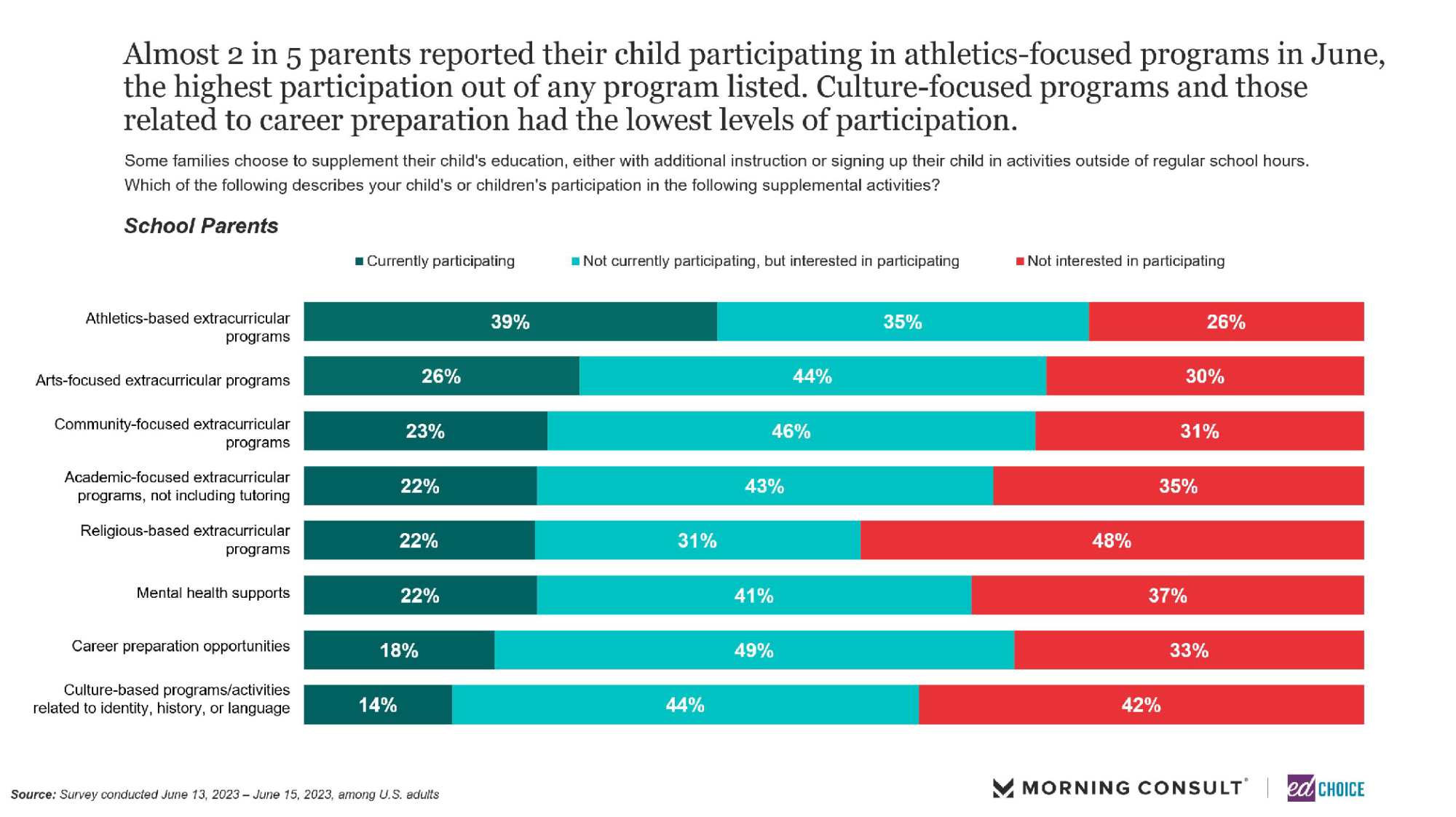
3. Parents report higher levels of happiness and wellbeing than non-parents. We asked respondents to rate several aspects of life satisfaction on a scale from one to ten. Parents were substantially more likely to rate their satisfaction an eight or higher than nonparents satisfied than non-parents in life direction (+18), overall wellbeing (+16), mental health (+10), and relationships with family members (+9. When thinking about the future, parents are much more likely to be enthusiastic (+17), feel a sense of purpose (+16), and feel hopeful (+15) compared to non-parents.



We also posed this question to parents and non-parents, “How do you generally feel about your life on a scale from 0 to 10, where 0 means you feel like you are suffering to a high degree and 10 means you are thriving to a high degree.” Nearly two in five school parents (38%) said they are thriving, compared to 22 percent of nonparents.

4. A decreasing share of school parents believe learning core academic subjects is “extremely important.” Only 45 percent of parents believe it is extremely important to learn core academic subjects in grades 9-12, continuing a four-month decline. Parents are more likely to say that skills for future employment and becoming independent thinkers are more important to learn than core academic subjects for students in grades 9-12. Parents placing less of a priority on high school students learning core academic subjects is in line with the results from our teens survey from the spring. In that survey, only 38 percent of teens felt it was extremely important to learn core academic subjects in grades 9-12, while 58 percent thought the same of skills for future employment.

5. Compared to May, private school parents and district school parents were more likely to say they are “very satisfied” with their child’s schooling experience in June. Nearly two-thirds of private school parents (65%) were very satisfied with their child’s schooling experience in June, an increase of 10 percentage points from May. District school parents were also more likely to say they are very satisfied with their child’s schooling experience in June, increasing 3 points over May. While district school parents have been less likely than private school parents to be very satisfied with their child’s schooling experience since we began monthly polling in early 2020, their satisfaction is near the highest level observed in our polling (50 percent in March 2023).


6. Americans’ support for school choice policies increased slightly in June. Americans’ support for ESAs (+1), charter schools (+1), and open enrollment (+3) slightly increased in June. Additionally, support for each of the school choice policies from the general public remains above 60 percent. Parents’ support for each of the school choice policies remains much higher than that of the general public. Support for each of these policies from parents is at least 70 percent, with ESAs continuing to be the most popular school choice option among parents at 75 percent.
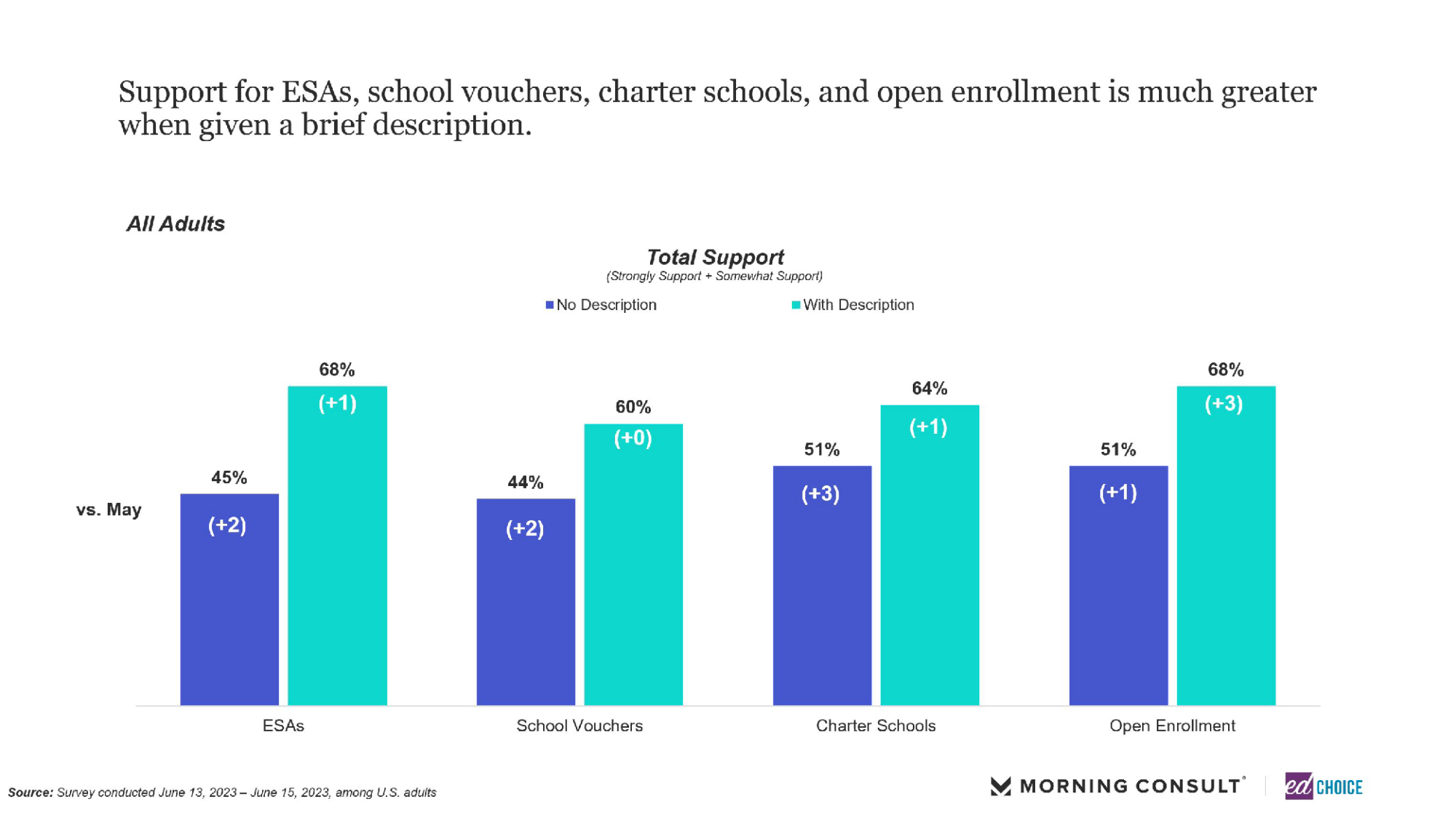
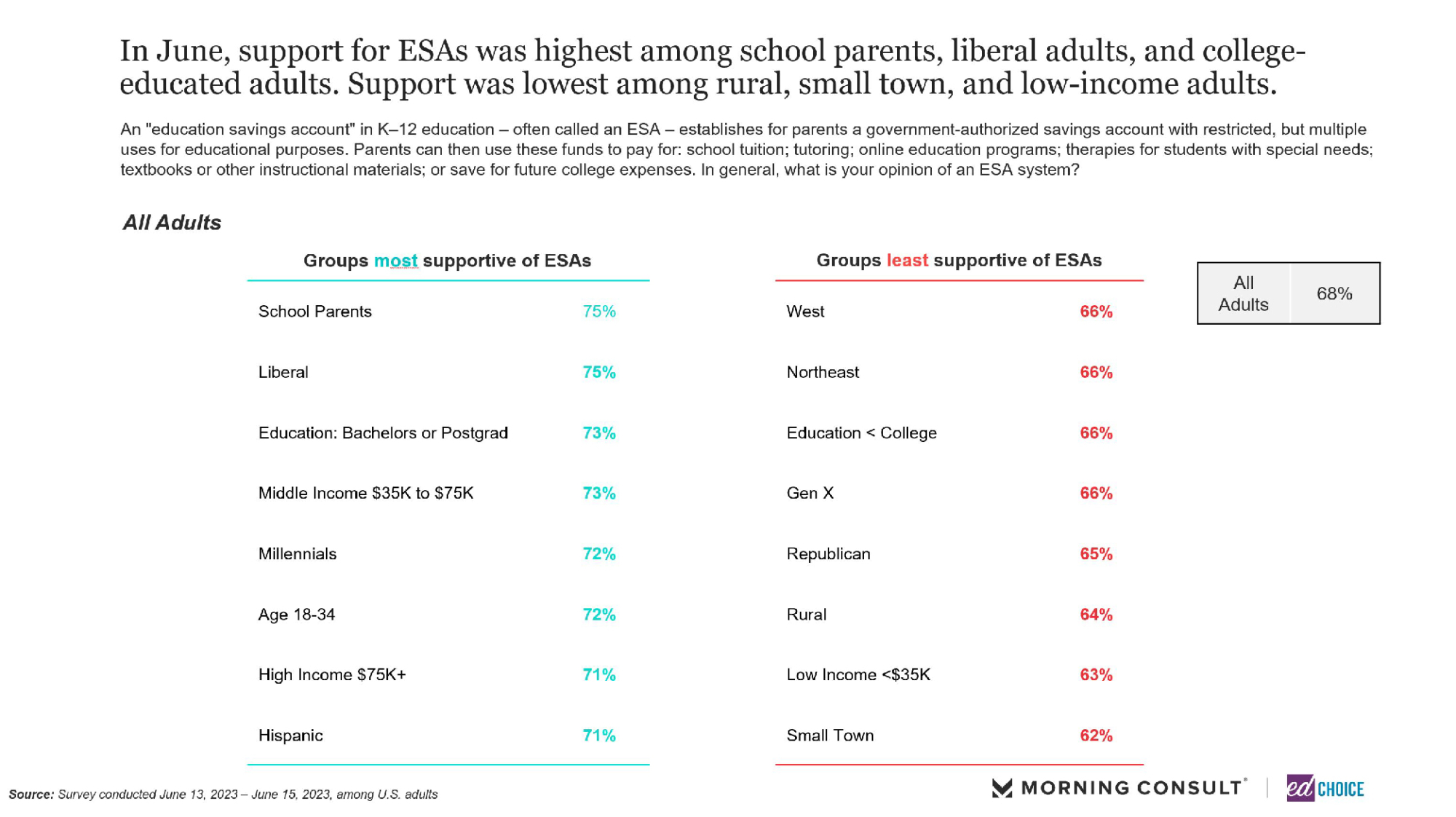
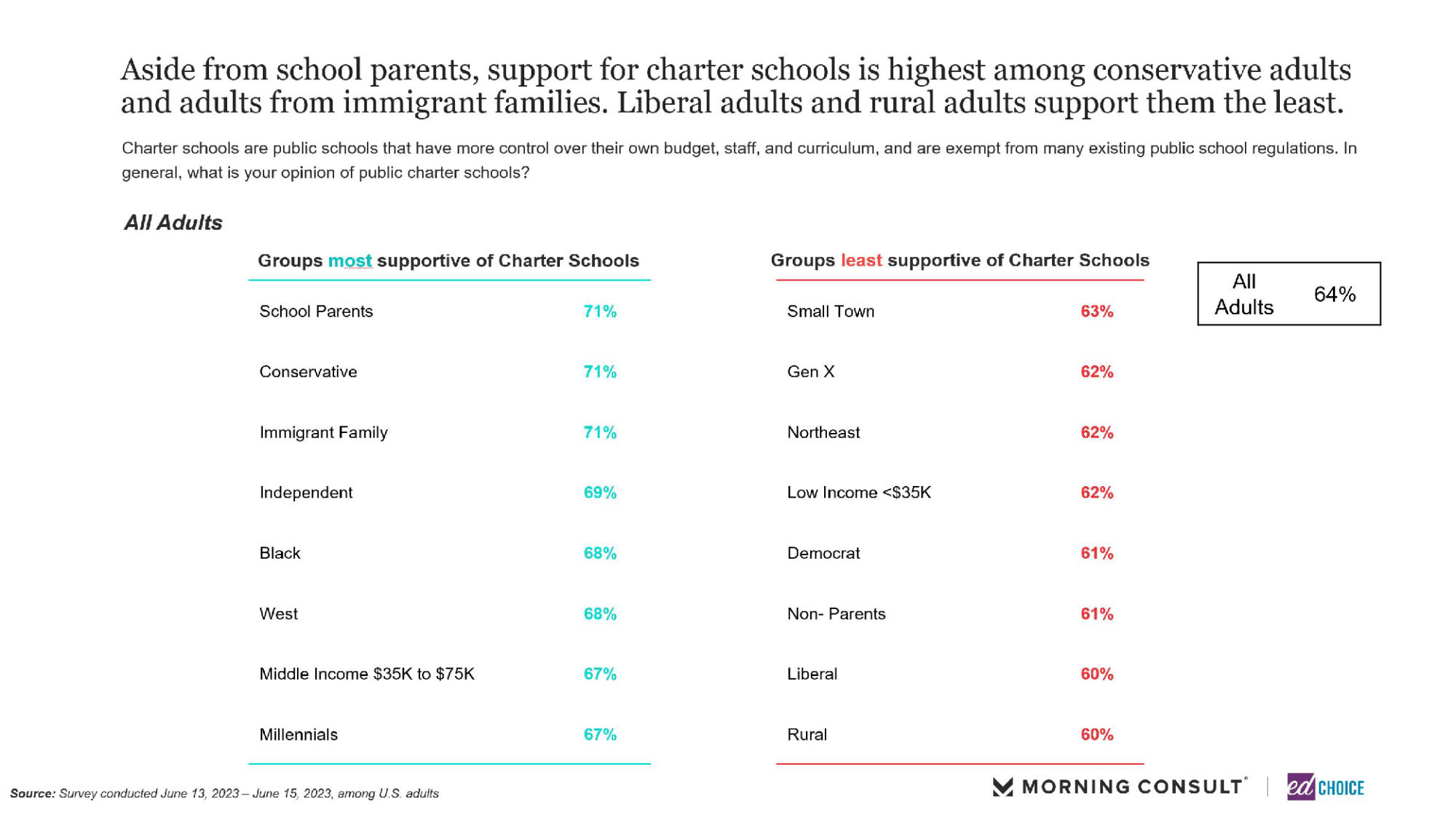
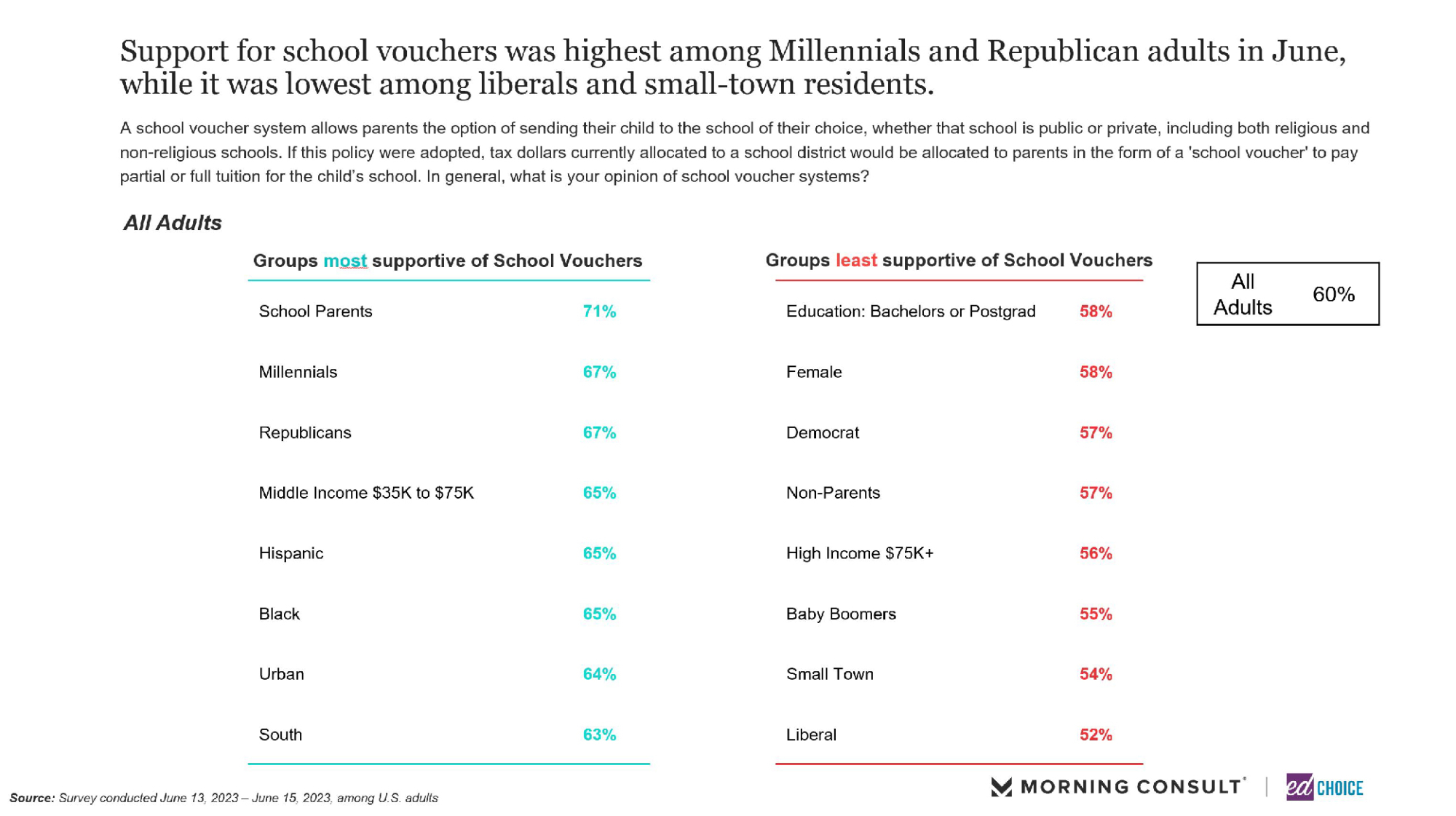
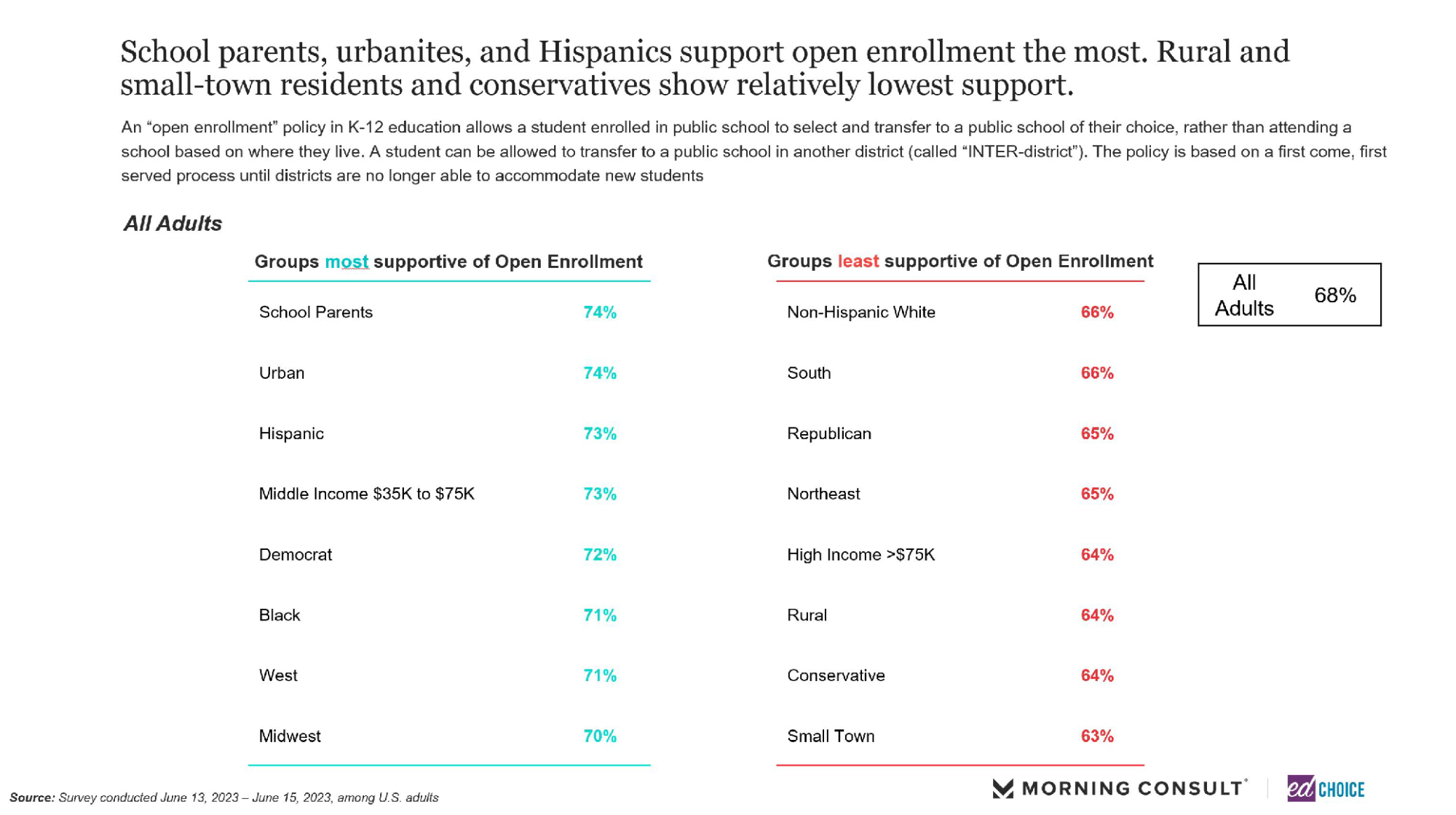
Visit the EdChoice Public Opinion Tracker site to access past reports, crosstabs, and questionnaires. We update our national and state dashboards every month. We also provide a more in-depth description of our research and survey methods.
Our K–12 education polls archive is updated on a rolling basis, roughly a few times each month. Please don’t hesitate to let us know if we are missing any surveys, or if there are accidental errors.




